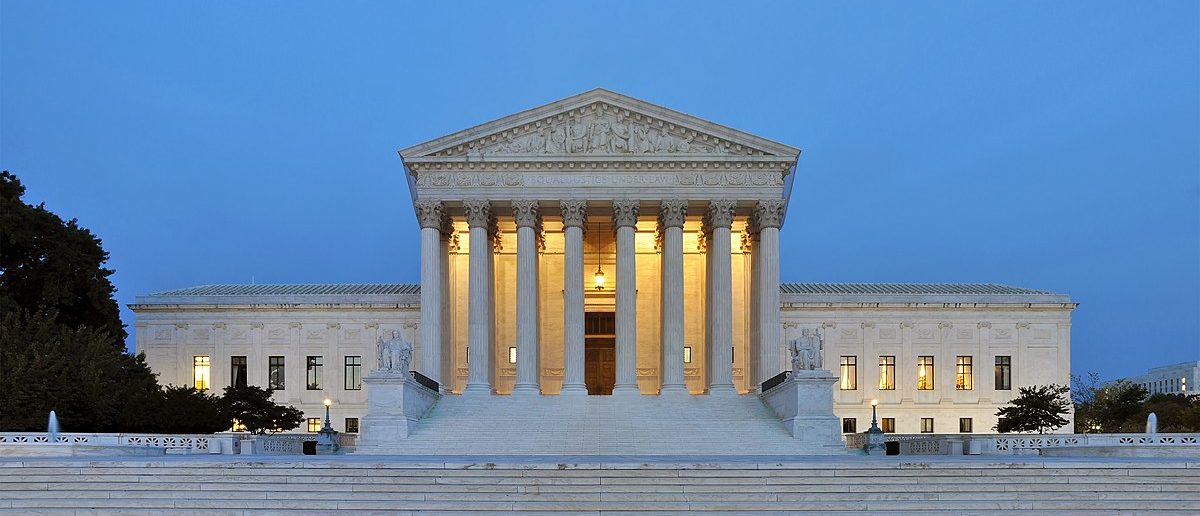Uncategorized
UK’s May on collision course with party rebels over Brexit

LONDON — British Prime Minister Theresa May was aiming to seal business support for her Brexit deal with the European Union on Monday, but remained on a collision course with a group of lawmakers seeking to unseat her.
The draft agreement has triggered an avalanche of criticism in Britain and left May fighting to keep her job.
She planned to say in a speech to business lobby group the Confederation of British Industry that the deal “fulfils the wishes of the British people” to leave the EU, by taking back control of the U.K.’s laws, money and borders.
May’s Downing St. office said she would confirm the government’s plan to end the automatic right of EU citizens to live and work in the U.K., saying Britain’s future immigration policy will be based on skills, rather than nationality.
“It will no longer be the case that EU nationals, regardless of the skills or experience they have to offer, can jump the queue ahead of engineers from Sydney or software developers from Delhi,” May plans to say.
The deal sealed last week between Britain and the EU after a year and a half of tense negotiations has infuriated pro-Brexit lawmakers in May’s Conservative Party and sparked a leadership crisis. The Brexiteers want a clean break with the bloc and argue that the close trade ties called for in the agreement will leave Britain a vassal state, bound to EU rules it has no say in making.
Two Cabinet ministers, including Brexit Secretary Dominic Raab, resigned in protest, and rebels are trying to gather the signatures of 48 lawmakers needed to trigger a no-confidence vote.
One of the rebels, Simon Clarke, on Monday urged wavering colleagues to help trigger a leadership challenge.
“It is quite clear to me that the captain is driving the ship at the rocks,” he said.
Even if May sees off a leadership challenge, she still has to get the deal approved by Parliament. Her Conservatives don’t have a parliamentary majority, and it’s not clear whether she can persuade enough lawmakers to back her agreement.
May argues that abandoning the plan, with Britain’s withdrawal just over four months away on March 29, could lead to a disorderly and economically damaging “no deal” Brexit — or to a situation in which Britain’s exit from the EU is postponed indefinitely.
Some Conservative Brexiteers, including Raab, say May should stay in post but try to renegotiate the deal — something May and other EU leaders insist is impossible.
Dutch Foreign Minister Stef Blok said Monday that “the withdrawal treaty is as good as it will get,” while Luxembourg Foreign Minister Jean Asselborn also said there is “no better” Brexit deal for Britain.
“We must make it understood today that this deal which is now on the table is the best one possible. There is no better one for this crazy Brexit,” Asselborn said as EU foreign ministers met in Brussels ahead of a leaders’ summit on Sunday at which the bloc intends to sign off on the deal.
While the 585-page, legally binding withdrawal agreement is complete, Britain and the EU hope this week to flesh out their far less detailed seven-page declaration on future relations.
“A painful week in European politics is starting,” said Austria’s minister for Europe, Gernot Bluemel. “We have the divorce papers on the table; 45 years of difficult marriage are coming to an end.”
___
Casert reported from Brussels.
___
See the AP’s Brexit coverage at: https://www.apnews.com/Brexit
Jill Lawless And Raf Casert, The Associated Press
Uncategorized
Kananaskis G7 meeting the right setting for U.S. and Canada to reassert energy ties


Energy security, resilience and affordability have long been protected by a continentally integrated energy sector.
The G7 summit in Kananaskis, Alberta, offers a key platform to reassert how North American energy cooperation has made the U.S. and Canada stronger, according to a joint statement from The Heritage Foundation, the foremost American conservative think tank, and MEI, a pan-Canadian research and educational policy organization.
“Energy cooperation between Canada, Mexico and the United States is vital for the Western World’s energy security,” says Diana Furchtgott-Roth, director of the Center for Energy, Climate and Environment and the Herbert and Joyce Morgan Fellow at the Heritage Foundation, and one of America’s most prominent energy experts. “Both President Trump and Prime Minister Carney share energy as a key priority for their respective administrations.
She added, “The G7 should embrace energy abundance by cooperating and committing to a rapid expansion of energy infrastructure. Members should commit to streamlined permitting, including a one-stop shop permitting and environmental review process, to unleash the capital investment necessary to make energy abundance a reality.”
North America’s energy industry is continentally integrated, benefitting from a blend of U.S. light crude oil and Mexican and Canadian heavy crude oil that keeps the continent’s refineries running smoothly.
Each day, Canada exports 2.8 million barrels of oil to the United States.
These get refined into gasoline, diesel and other higher value-added products that furnish the U.S. market with reliable and affordable energy, as well as exported to other countries, including some 780,000 barrels per day of finished products that get exported to Canada and 1.08 million barrels per day to Mexico.
A similar situation occurs with natural gas, where Canada ships 8.7 billion cubic feet of natural gas per day to the United States through a continental network of pipelines.
This gets consumed by U.S. households, as well as transformed into liquefied natural gas products, of which the United States exports 11.5 billion cubic feet per day, mostly from ports in Louisiana, Texas and Maryland.
“The abundance and complementarity of Canada and the United States’ energy resources have made both nations more prosperous and more secure in their supply,” says Daniel Dufort, president and CEO of the MEI. “Both countries stand to reduce dependence on Chinese and Russian energy by expanding their pipeline networks – the United States to the East and Canada to the West – to supply their European and Asian allies in an increasingly turbulent world.”
Under this scenario, Europe would buy more high-value light oil from the U.S., whose domestic needs would be back-stopped by lower-priced heavy oil imports from Canada, whereas Asia would consume more LNG from Canada, diminishing China and Russia’s economic and strategic leverage over it.
* * *
The MEI is an independent public policy think tank with offices in Montreal, Ottawa, and Calgary. Through its publications, media appearances, and advisory services to policymakers, the MEI stimulates public policy debate and reforms based on sound economics and entrepreneurship.
As the nation’s largest, most broadly supported conservative research and educational institution, The Heritage Foundation has been leading the American conservative movement since our founding in 1973. The Heritage Foundation reaches more than 10 million members, advocates, and concerned Americans every day with information on critical issues facing America.
Uncategorized
Poilievre on 2025 Election Interference – Carney sill hasn’t fired Liberal MP in Chinese election interference scandal

From Conservative Party Communications
“Yes. He must be disqualified. I find it incredible that Mark Carney would allow someone to run for his party that called for a Canadian citizen to be handed over to a foreign government on a bounty, a foreign government that would almost certainly execute that Canadian citizen.
“Think about that for a second. We have a Liberal MP saying that a Canadian citizen should be handed over to a foreign dictatorship to get a bounty so that that citizen could be murdered. And Mark Carney says he should stay on as a candidate. What does that say about whether Mark Carney would protect Canadians?
“Mark Carney is deeply conflicted. Just in November, he went to Beijing and secured a quarter-billion-dollar loan for his company from a state-owned Chinese bank. He’s deeply compromised, and he will never stand up for Canada against any foreign regime. It is another reason why Mr. Carney must show us all his assets, all the money he owes, all the money that his companies owe to foreign hostile regimes. And this story might not be entirely the story of the bounty, and a Liberal MP calling for a Canadian to be handed over for execution to a foreign government might not be something that the everyday Canadian can relate to because it’s so outrageous. But I ask you this, if Mark Carney would allow his Liberal MP to make a comment like this, when would he ever protect Canada or Canadians against foreign hostility?
“He has never put Canada first, and that’s why we cannot have a fourth Liberal term. After the Lost Liberal Decade, our country is a playground for foreign interference. Our economy is weaker than ever before. Our people more divided. We need a change to put Canada first with a new government that will stand up for the security and economy of our citizens and take back control of our destiny. Let’s bring it home.”
-

 Daily Caller17 hours ago
Daily Caller17 hours agoUnanimous Supreme Court Ruling Inspires Hope For Future Energy Project Permitting
-

 espionage14 hours ago
espionage14 hours agoFrom Sidewinder to P.E.I.: Are Canada’s Political Elites Benefiting from Beijing’s Real Estate Reach?
-

 conflict1 day ago
conflict1 day agoTrump dismisses US intelligence that Iran wasn’t pursuing nuclear bomb before Israeli attack
-

 Censorship Industrial Complex1 day ago
Censorship Industrial Complex1 day agoJordan Peterson reveals DEI ‘expert’ serving as his ‘re-education coach’ for opposing LGBT agenda
-

 Alberta1 day ago
Alberta1 day agoUnified message for Ottawa: Premier Danielle Smith and Premier Scott Moe call for change to federal policies
-

 Daily Caller2 days ago
Daily Caller2 days ago‘Not Held Hostage Anymore’: Economist Explains How America Benefits If Trump Gets Oil And Gas Expansion
-

 Alberta2 days ago
Alberta2 days agoAlberta pro-life group says health officials admit many babies are left to die after failed abortions
-

 Business1 day ago
Business1 day agoCanada’s critical minerals are key to negotiating with Trump






